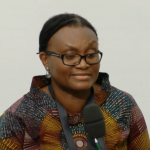Norms and standards emanating from private actors located in the Global North have become influential in the governance of agriculture and food systems in Africa and the Global South where there have been three cycles of a scramble for land, water, minerals and other natural resources since the nineteenth century. These norms and standards have spawned a wide-ranging literature that raises questions about their legitimacy, purpose, assumptions, transmission and what they expose about global power configurations and the continued relevance of the nation state and its territorial integrity. There have also been questions about their relevance for addressing pressing questions of land dispossession and the social reproduction of smallholders and pastoralists, the increasing social differentiation and inequalities which disadvantage rural women, migrants and young people as well as the agenda of structural transformation in Africa.
This lecture examines some of these questions through an examination of the promise and actual practice of ethical contract farming in Ghana as an example of a technology and practice governed by global norms and standards on land acquisition, labour rights and gender equity. Contract farming, which is largely deployed to produce agricultural commodities primarily for export, is enjoying renewed research and policy attention because of its promotion as a win-win solution to the dispossession and immiseration of smallholder farmers by large-scale land acquisitions. The lecture is particularly interested in what is lost in the transmission of standards from the global to the sub-national all the way to the smallholder household, where transnational corporations, international and national NGOs and the local elite groups are re-organising household production systems. The lecture also examines the gender subtext of global norms and standards, and the gendered responses to their application in contract farming arrangements by farm households and their members.
About the speaker
Dzodzi Tsikata is Research Professor (development sociology) and the Director of the Institute of African Studies (IAS) at the University of Ghana. She is a Research Affiliate with the Gender Centre and collaborates with the Centre on the DEMETER research project.
In a career spanning over 27 years, Tsikata’s teaching, research and advocacy have been in the areas of gender and development policies and practices; the gendered political economy of agrarian change; and informal labour relations and conditions of work. Her publications include the co-edited book (with Cheryl Rodriguez and Akosua Adomako Ampofo) Transatlantic feminisms: Women and Gender Studies in Africa and the Diaspora (Lexington Books, 2015) and (with Ruth Hall and Ian Scoones) Africa’s Land Rush: Implications for Rural Livelihoods and Agrarian Change (Boydell and Brewer Ltd; 2015). She is a member of the editorial collective of several journals, including Agrarian South: Journal of Political Economy; Feminist Africa and Feminist Economics. She serves on the boards of the International Association for Feminist Economics (IAFFE), Third World Network Africa, the Network for Women’s Rights in Ghana (NETRIGHT), the Sam Moyo African Institute for Agrarian Studies (SMAIAS) and the Centre for Democratic Development (CDD), Nigeria. Dzodzi Tsikata is a fellow of the Ghana Academy of Arts and Sciences and the immediate past President of the Council for the Development of Social Science Research in Africa (CODESRIA).




